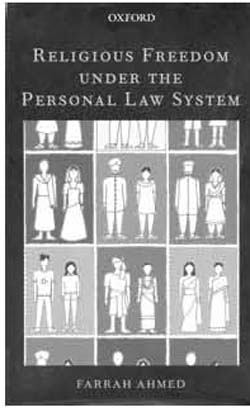Looking at the proceedings of the Constituent Assembly of India, between November 1948 and January 1949, one is compelled to note the immense amount of criticism that the draft constitution evoked. One of the draft articles that came up for discussion was the then Article 35 which stated that the state should endeavour to establish a Uniform Civil Code in India. In response, one member complained that the draft constitution lacked any ‘provisions which safeguard the personal law of the people’ (Nov. 8, 1948). Another member insisted that ‘The right of a group or a community of people to follow and adhere to its own personal law is among the fundamental rights and this provision should really be amongst the statutory justiciable fundamental rights’ (November 23, 1948). It was also pointed out that ‘each religious community has certain religious laws, certain civil laws inseparably connected with religious beliefs, and practices. Having guaranteed and very rightly guaranteed freedom of religious practice and the freedom to propagate religion, I think the present Article tries to undo what has been given in Article 19’ (Article 25 of the Constitution, now).
These claims assume a strong link between religious freedom and personal law. The defence of personal law, then and now, is usually mounted on this ground; it becomes essential, then, to unpack the argument making personal law an aspect of religious freedom. To this day, the issue of personal law has not gone away in India; these days, the Indian press is full of the story of Shayara Bano’s writ petition, (with umpteen references to the Shah Bano case) which has reached the Supreme Court, urging it to declare talaq-e-bidat and nikah-halala as illegal because, among other things, they contravene Articles 21 (protection of life and liberty) and 25 (freedom of religion) of the Indian Constitution. Advocates of these provisions of Muslim personal law, on the other hand, have come out in their defence. Personal law has also become grist to the mill in multicultural theory and feminist theory, where the discussion has moved beyond specific empirical cases to a deliberation about individual freedom and community belonging and how this applies when the individuals being thought about are women. In this context, it is useful to look at Farrah Ahmed’s apposite and interesting book as it unravels the threads knitting together personal law with religious liberty.

